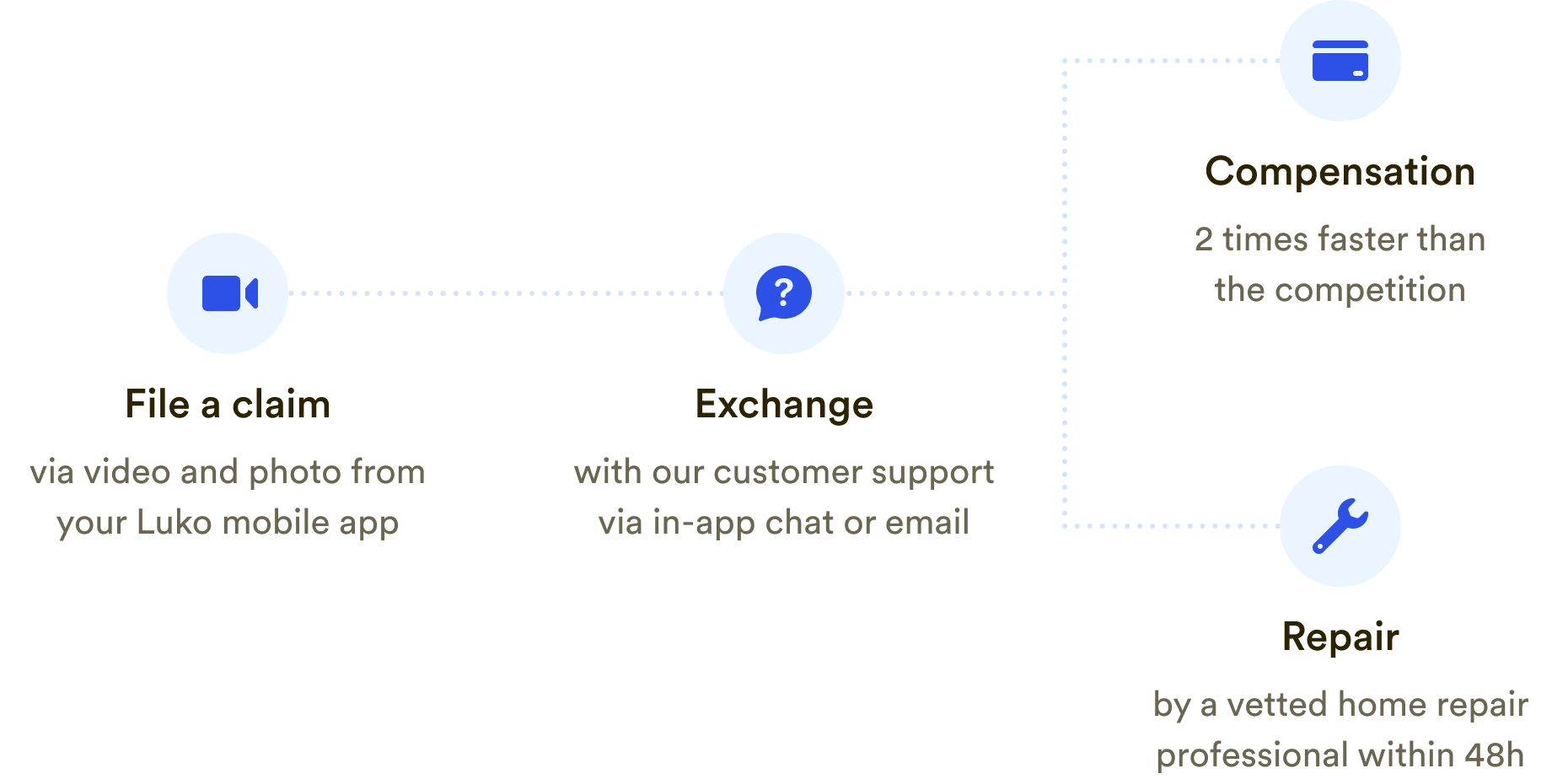All you need to know about homeowner's insurance
Landlord insurance covers you when you own a property that you do not occupy: this is often the case when the property is a rental investment and you are a landlord (i.e. you rent the property to tenants), or when the property is vacant.
Is It Mandatory?
The 2014 Alur Law made landlord insurance mandatory for properties in co-ownership. For standalone properties, such as single-family homes or buildings owned entirely by one person, it’s not legally required but is highly recommended. It protects your liability as a property owner and safeguards the property itself.
Why should landlords get landlord insurance?
Beyond legal obligations (which apply in most cases), landlord insurance offers several benefits:
- Protect your property: If a problem occurs, landlord insurance can complement coverage from your tenant or co-ownership insurance, if applicable.
- Cover liability: If you’re found responsible for damage to a third party, your insurance steps in to cover the costs.
- Ensure coverage during vacancies: If the property is empty, landlord insurance protects it when tenant insurance isn’t active.
- Insure furnishings in a furnished rental: This includes furniture, outdoor features like pools, and outbuildings.
Quick subscription, few documents required.
Want to know more about landlor insurance? Our expert, Vianney, explains everything you need to stay protected.
Good to Know:
Your insurance premiums are tax-deductible from rental income, making it an affordable and practical expense.
Protect your real estate investment
A rental property, whether a flat, rental building or house, are significant investments. Insurance ensures your property is covered against most issues, large or small, through repairs or financial compensation.
For additional security, unpaid rent insurance can also be added as an option to protect you if a tenant defaults on rent payments.
Protect your liability
Some claims can fall under the landlord's responsibility. Landlord contracts therefore systematically include civil liability cover to protect the owner, who will compensate victims on his or her behalf in such cases. Criminal Defense and Recourse coverage may also be included to cover your legal fees in the event of legal action.
Cover your property during vacancies
Your property might be vacant between tenants. During these periods the tenant’s usual insurance does not apply, leaving your property without coverage. If damage occurs and you are uninsured, you will be fully responsible for the costs. Learn more in our guide on insuring an unoccupied property.
Fill gaps in tenant coverage
Why bother with insurance if your tenants already have home insurance?
Tenant policies often meet only minimum legal requirements and may not fully compensate you in the event of a serious incident. By having your own insurance, you ensure that your property is properly protected.
Who pays for landlord insurance?
As the landlord, it’s your responsibility to pay for non-occupant landlord insurance for your rental or vacant property. The cost is tax-deductible at the end of the year.
Tenant insurance, on the other hand, is the tenant’s responsibility unless you’ve arranged coverage on their behalf. In that case, you pay for the policy and recover the cost through tenant charges.
How much does it cost?
At Luko by Allianz Direct, landlord insurance starts at just €4.5* per month, though the cost depends on several factors. The easiest way to find your price is with a free online quote.
How is the price calculated?
Similar to standard home insurance, the cost of landlord insurance depends on factors like:
- The property’s location
- Its size
- The floor it’s on
Other factors include the value of items you want to cover (e.g., furnishings in a furnished rental) and the deductible you choose.
3 Tips to lower your insurance premium
Here’s how to reduce your monthly or annual costs:
- Choose only necessary coverage: Do you need outdoor coverage for a flat? Is furniture insurance required for an unfurnished rental? Adjust your policy to your needs.
- Increase your deductible: A higher deductible means lower premiums, though you will cover more out-of-pocket for claims.
- Opt for online insurance: Online providers generally offer lower rates than traditional insurers due to fewer intermediaries and lower overhead costs.
When should you subscribe?
Don’t wait until your property is rented or renovation work is done. Accidents can happen anytime. The safest option is to insure your property as soon as you take ownership and keep it insured until it’s sold.





